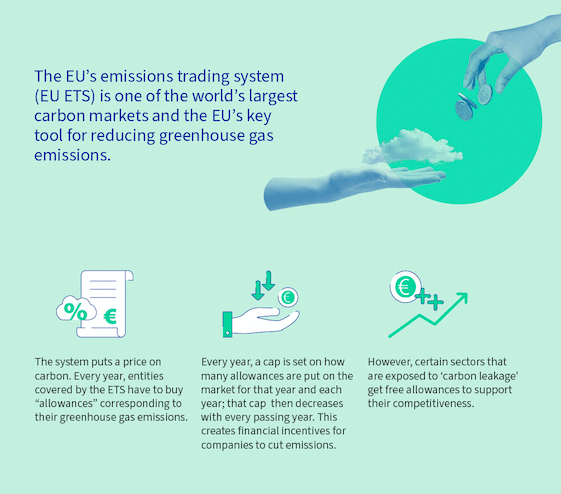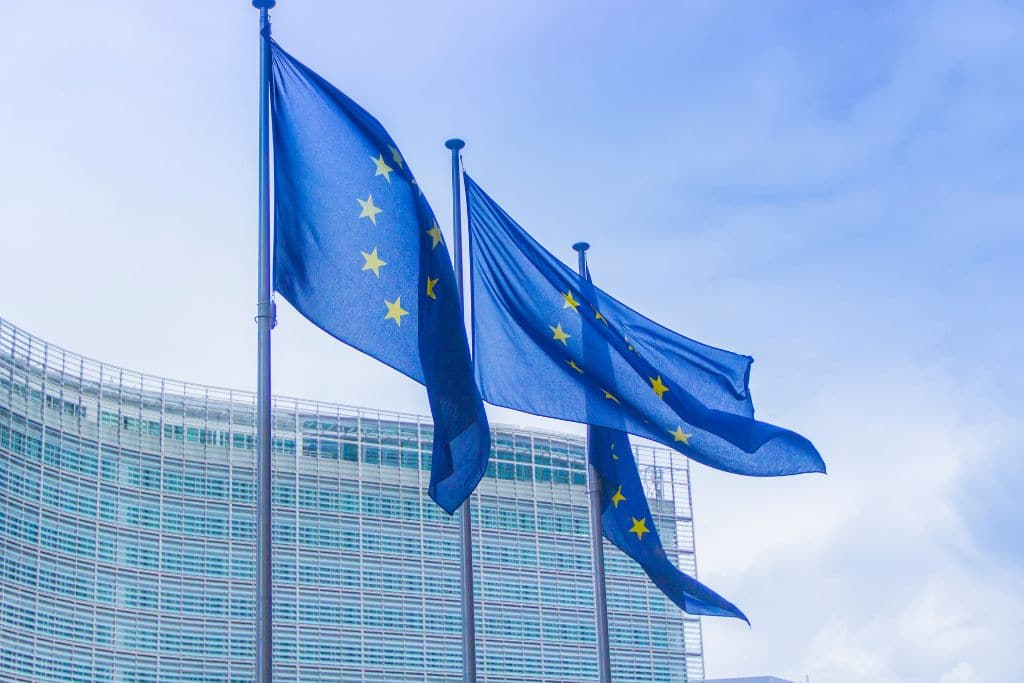EU countries gave the green light on Tuesday to the biggest overhaul to date of the bloc’s carbon market, raising costs for polluting industries and increasing its emissions reduction target from 43% to 62% by 2030.
—
With 24 votes to two and two abstentions, EU countries on Tuesday approved key pieces of legislation that will help the bloc deliver on its 2030 climate targets, including the biggest revamp of Europe’s carbon market and new taxes on imports of high-carbon goods.
The laws are part of the ‘Fit for 55’ package, the bloc’s plan to reduce greenhouse gas emissions by at least 55% by the end of the decade compared to 1990 levels, in line with the European Climate Law.
The Council’s vote, the last step of the decision-making procedure, comes a week after the European Parliament approved the ambitious new rules, including an upgrade of the bloc’s carbon market – better known as the EU Emissions Trading Scheme (EU ETS) – to cut emissions by 62% from 2005 levels by 2030, up from the current 43% reduction target.
Launched in 2005, the EU ETS – a cornerstone of the EU policies to fight climate change and reduce greenhouse gas emissions cost-effectively – is the second-largest carbon market in the world and is linked to limiting emissions from 10,000 different installations in the power sector, combustion plants, oil refineries, and airlines. Since its introduction, the bloc has managed to cut emissions by around 43% in these sectors.

The EU’s Emissions Trading System (ETS). Graph: European Council.
The new reforms include the addition of emissions from the shipping industry to the EU ETS for the first time. Starting in 2024, shipping companies will have to buy carbon permits to cover at least 40% of their emissions, rising to 70% in 2025. By 2026, these will have to cover 100% of emissions.
A separate new ETS that includes buildings, road transport, and fuels for additional sectors was also approved.
The maritime transport industry accounts for about 90% of world trade and plays a key role in the bloc’s economy. However, it is also a large and growing source of pollution, responsible for about 3 to 4% of the EU’s total CO2 emissions annually. In 2019, these amounted to approximately 144 million tonnes.
Included in the ambitious climate policies agreed upon on Tuesday is also the world-first plan to phase in a price on imports of high-carbon goods from 2026 as part of the EU’s Carbon Border Adjustment Mechanism (CBAM). Goods include steel, cement, aluminium, fertilisers, electricity, and hydrogen. The goal is to create a more level playing field between the bloc and non-EU producers.
The European Council and Parliament on Tuesday also reached a provisional agreement to decarbonise the aviation sector by increasing both demand for and supply of sustainable aviation fuels (SAF). The proposal includes the obligation for aviation fuel suppliers to ensure that the fuel made available contains a minimum share of SAF from 2025 and a minimum share of synthetic fuels from 2030, both of which would increase progressively until 2050.
Finally, countries reached a deal to set up an €86.7 billion (US$97.2) climate fund in 2026 to support vulnerable European households, micro-enterprises, and transport users particularly affected by the climate transition and rising energy costs. The Social Climate Fund (SCF) will be funded by revenues from the new Emissions Trading System.
You might also like: EU Approves Ban on Sales of Gas-Powered Cars by 2035, Sets Weaker Emission-Reduction Targets for Trucks and Buses


















